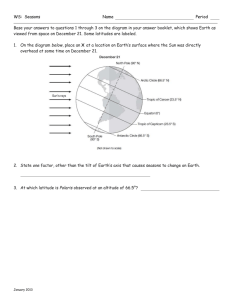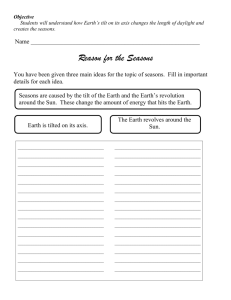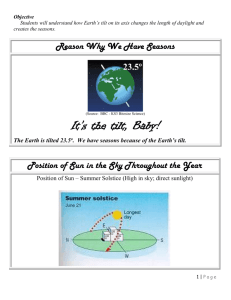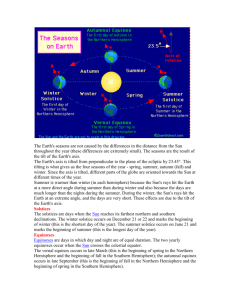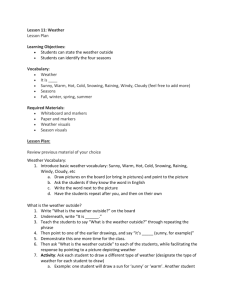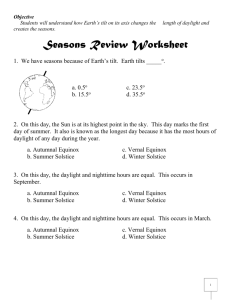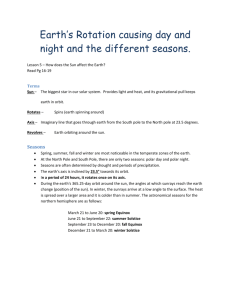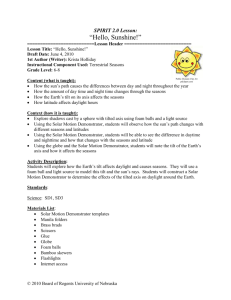Seasons Review Worksheet Answers
advertisement
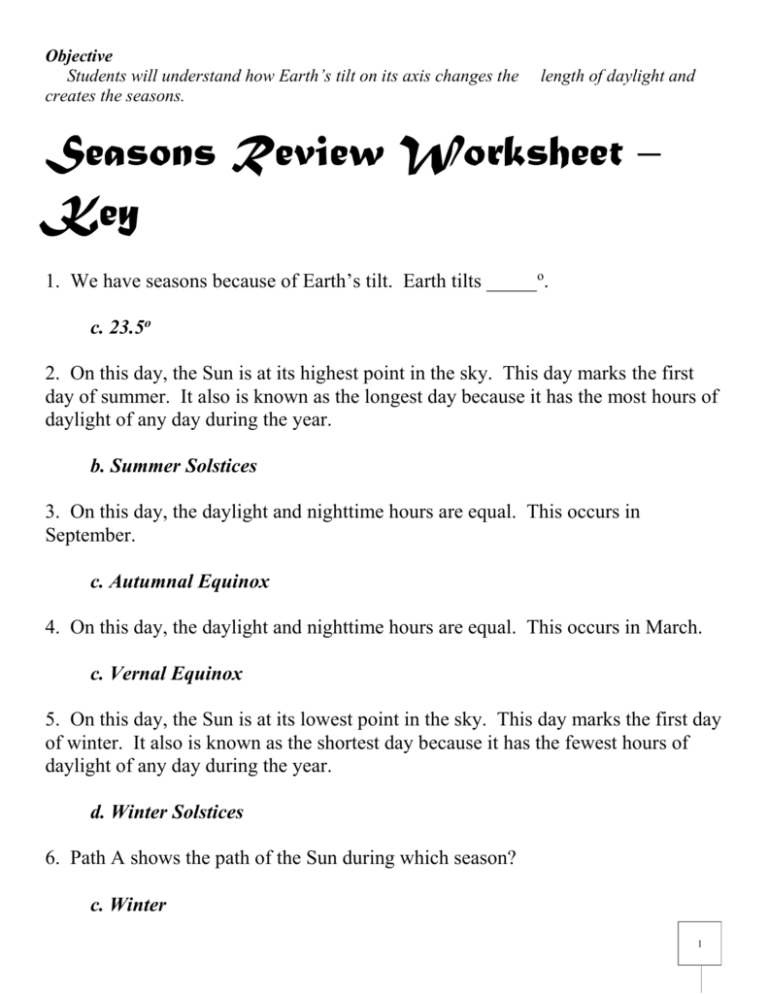
Objective Students will understand how Earth’s tilt on its axis changes the creates the seasons. length of daylight and Seasons Review Worksheet – Key 1. We have seasons because of Earth’s tilt. Earth tilts _____o. c. 23.5o 2. On this day, the Sun is at its highest point in the sky. This day marks the first day of summer. It also is known as the longest day because it has the most hours of daylight of any day during the year. b. Summer Solstices 3. On this day, the daylight and nighttime hours are equal. This occurs in September. c. Autumnal Equinox 4. On this day, the daylight and nighttime hours are equal. This occurs in March. c. Vernal Equinox 5. On this day, the Sun is at its lowest point in the sky. This day marks the first day of winter. It also is known as the shortest day because it has the fewest hours of daylight of any day during the year. d. Winter Solstices 6. Path A shows the path of the Sun during which season? c. Winter 1 Objective Students will understand how Earth’s tilt on its axis changes the creates the seasons. length of daylight and 7. Path B shows the path of the Sun during which season? a. Autumn /Spring b. Summer c. Winter a. Autumn/Spring 8. Path C shows the path of the Sun during which season? b. Summer 9. Which circle best demonstrates the sunlight we receive in summer? a. A 10. Which circle best demonstrates the sunlight we receive in winter? d. D 11. Which diagram represents the Sun in summer (direct heat energy)? a. Diagram A 12. Which diagram represents the Sun in winter (indirect heat energy)? b. Diagram B 13. This is an example of Earth’s… a. revolution 14. The Earth rotates ________________ around its axis. b. counterclockwise 2 Objective Students will understand how Earth’s tilt on its axis changes the creates the seasons. length of daylight and 15. When the Earth is at Position A, we are experiencing which seasons? b. Spring 16. When the Earth is at Position B, we are experiencing which seasons? c. Summer 17. When the Earth is at Position C, we are experiencing which seasons? a. Autumn 18. When the Earth is at Position D, we are experiencing which seasons? d. Winter 19. When the Earth is at Position A, we are experiencing which season? a. Autumn 20. When the Earth is at Position B, we are experiencing which season? d. Winter 21. When the Earth is at Position C, we are experiencing which season? b. Spring 22. When the Earth is at Position D, we are experiencing which season? c. Summer 3 Objective Students will understand how Earth’s tilt on its axis changes the creates the seasons. length of daylight and 23. The arrows point the direction of the Earth’s… b. rotation. B 24. Picture A A 25. Picture B 4 Objective Students will understand how Earth’s tilt on its axis changes the creates the seasons. length of daylight and Seasons Review Worksheet – Scoring Guide 1. c 2. b 3. c 4. c 5. d 6. c (3 choices) 7. a (3 choices) 8. b 9. a 10. d 11. a (2 choices) 12. b (2 choices) 13. a 14. b (2 choices) 15. b 16. c 17. a 18. d 19. a 20. d 21. b 22. c 23. b 24. B (2 choices) 25. A (2 choices) Scoring Guide 22-25 – 3 19-21 – 2.5 15-18 – 2 10-14 – 2.5 5-9 – 1 1-4 – .5 0–0 5

